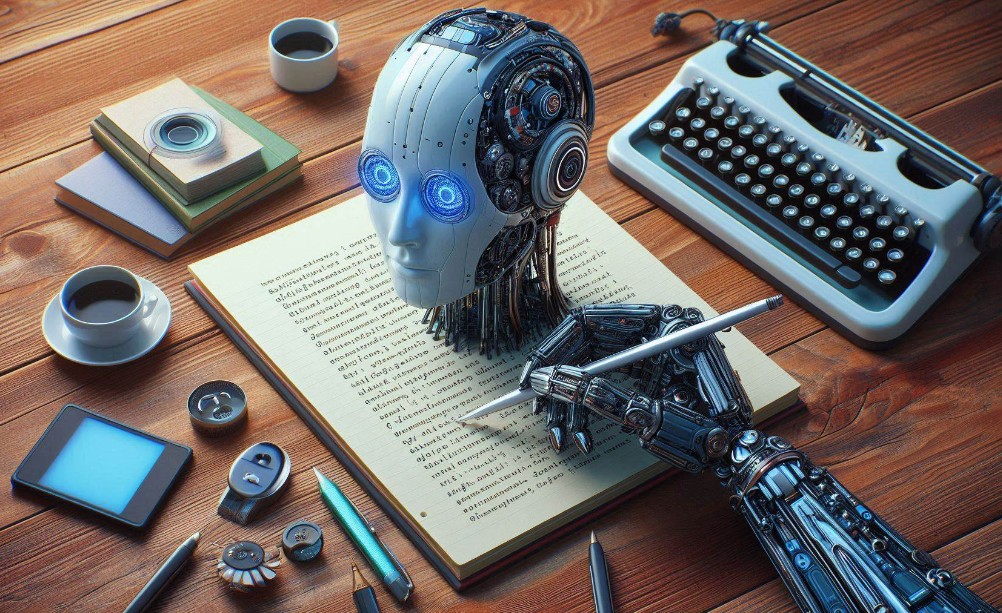In recent years, there has been a significant advancement in the field of Artificial Intelligence (AI) and Augmented Reality (AR). These technologies have become increasingly popular and have the potential to enhance virtual experiences in various fields such as gaming, education, healthcare, and...
Copywriting and Artificial Intelligence How AI Writes Content

In today's digital age, automated tools are reshaping the way text is produced. From marketing messages to product descriptions, technology is revolutionizing the creative process by generating material at unprecedented speeds. These advancements bring forth new opportunities for businesses to engage with their audiences efficiently and effectively.
With increasing demand for personalized messaging and optimized messaging strategies, these tools are quickly becoming indispensable for professionals. Their ability to analyze vast amounts of data and create tailored expressions holds significant promise, though it also raises questions about originality and the human touch in communication.
As the landscape continues to evolve, understanding the potential of machine-generated material will be essential for adapting to modern marketing approaches and staying ahead of the competition.
How AI is Transforming Content Creation
The evolution of technology has paved the way for machines to assist in generating written material. This shift has significantly impacted the speed, efficiency, and accuracy with which text is produced. With the help of automated tools, businesses can now create high-quality material in less time, allowing them to reach their target audiences more effectively. These systems are capable of processing large datasets, recognizing patterns, and generating text that aligns with specific goals and tones.
Increased Efficiency in Producing Text
One of the primary advantages of these systems is their ability to generate content quickly. Tasks that once required hours of work can now be completed in a fraction of the time. By automating repetitive writing tasks, businesses can focus on more strategic aspects of their marketing efforts, ensuring that resources are used more effectively. This boost in efficiency benefits companies looking to stay ahead in a fast-paced digital world.
Customization at Scale
Automated systems allow for high levels of personalization in communication. By analyzing consumer data, these tools can produce material tailored to specific audiences, ensuring greater engagement. Whether it's crafting personalized emails or adjusting marketing messages to suit individual preferences, this technology offers an unparalleled level of customization at scale, enhancing both customer experience and business outcomes.
Understanding the Role of AI in Copywriting
The rise of automated technologies has introduced a new way of approaching written material. These tools have become crucial in streamlining the process of creating effective messages, especially in fields where high volume and quick turnaround are essential. By leveraging data and machine learning, these systems can assist in generating tailored text with precision and speed.

These tools contribute in several key areas:
- Efficiency: Reducing the time spent on repetitive tasks, allowing writers to focus on more complex assignments.
- Consistency: Ensuring uniformity in tone and style across large volumes of material.
- Personalization: Customizing messages based on customer data to increase relevance and engagement.
- Optimization: Analyzing audience preferences and adjusting content to improve performance.
Though these systems are not a complete replacement for human creativity, they provide valuable support in producing material that resonates with the target audience, thereby enhancing marketing efforts.
Benefits and Challenges of AI-Generated Content
The use of automated systems in producing written material has brought numerous advantages, but it also introduces certain limitations that must be addressed. While these tools can generate large volumes of text quickly, the output may not always match the nuanced understanding of a human writer. It’s essential to weigh both the benefits and challenges when considering their use in professional environments.
Advantages of Machine-Generated Text
- Speed: Machines can produce written material at a rapid pace, greatly reducing turnaround times for businesses.
- Cost-Effectiveness: By automating repetitive tasks, companies can reduce the need for extensive manual labor, lowering operational costs.
- Scalability: These tools can generate vast amounts of material, making it easier to handle large-scale projects or campaigns.
- Data-Driven: AI systems can analyze data to produce highly relevant and targeted messaging, increasing audience engagement.
Challenges of Machine-Generated Text
- Lack of Creativity: While machines can generate structured content, they may lack the creativity and originality that human writers bring to the table.
- Context Sensitivity: AI systems may struggle to understand complex contexts or subtle nuances, leading to less effective messaging.
- Quality Control: The generated material may require manual editing to ensure accuracy, tone, and relevance, which can reduce efficiency.
- Dependence on Data: These systems rely on existing datasets, which can limit their ability to produce truly unique or innovative ideas.
Despite these challenges, the continued development of these technologies offers the potential to improve their capabilities, ultimately enhancing the way businesses approach written communication.



